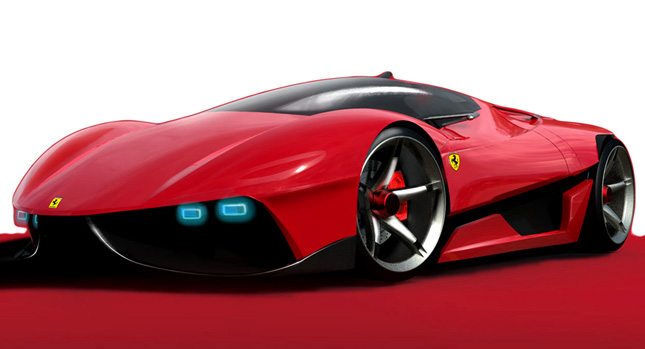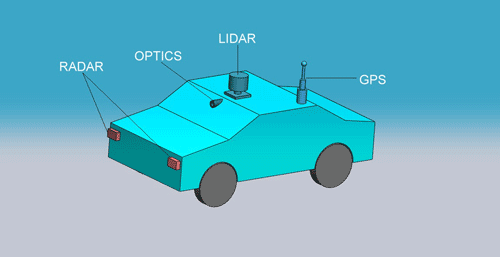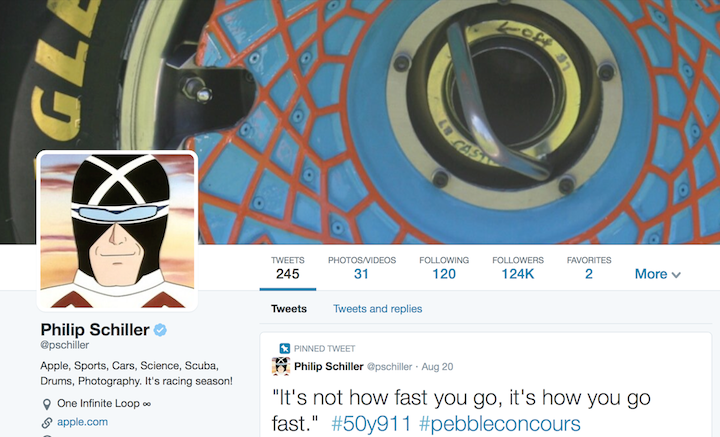We stand at the intersection of the Internet of Things and the Connected Car. Soon, Cortana shall summon to us a driverless, fully autonomous vehicle, shared by the community, owned by no one, that will safely transport us to our chosen locale, as we tweet, stream, and tap away from the comfort of the back seat. Mostly, this is good. For most even, it will likely be very good. But I fear one of humanity’s greatest inventions, the car, will be reduced to yet another boring box, stuffed with computer chips, powered by lines of codes, and possessing no soul.
Please Silicon Valley, do not kill my love for the car.
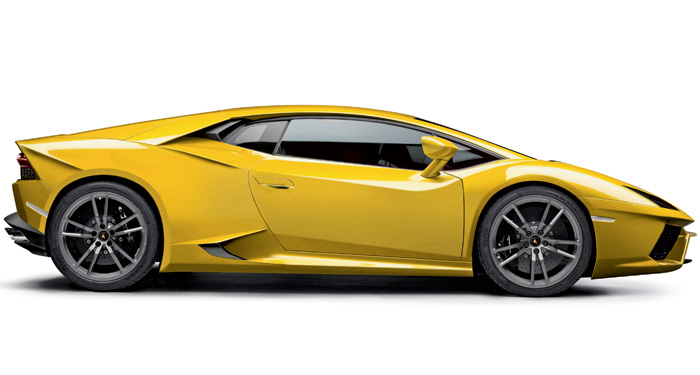
One Piece At A Time
A revolution is taking place within the automotive industry. It began not in Detroit, Germany or Tokyo, but as with all revolutions, from the outside. In this case, Silicon Valley. The spread of computing, connectivity and the cloud has at last reached our cars. Driving — and automobiles — will never be the same.
Per the glorious visions of venture capitalists, the new market dreams of old world automakers and the ceaseless, prosaic functions of the Internet of Things, this is our car’s very-near future: Sensors under the hood, inside the dash, within the tires, sensors embedded in the roads and placed above traffic lights, all pumping out streams of data in real time, sent via telemetry to nearby vehicles, transmitted to the web for processing and analysis, shared with the crowd, then acted upon by the many computer chips within our own increasingly self-aware vehicle, all part of a highly monetizable big data ecosystem.
I am not at all opposed to this. Such efforts will almost certainly lead to faster commutes, a greener planet, fewer accidents and many saved lives. The Silicon Valley vision for the car of tomorrow should be lauded.
I ask only that the very best aspects of the car be carried forward into the future and not de-constructed into little more than a cubicle on wheels.
As a native Detroiter, I know cars are more than just data generators. Cars are freedom, independence, liberty, aspiration, mobility. In so many ways, cars disconnect us from the world as they reconnect us with our primal emotions. Cars are beautiful, personal, powerful. I want this not to go away.
I am not at all convinced we can trust Silicon Valley to transform these glorious mechanical objects into anything other than another node in a data-fueled, globe spanning web.
Let Me Ride
While driverless cars, as Google has promoted, are likely a decade away from practical use, semi-autonomous vehicles should be available in the developed world well before the end of this decade. The Internet of Things will enable these semi-autonomous, ‘situationally aware’ vehicles to keep us properly centered in the lane, to apply the brakes if we, the ‘driver,’ fail to spot the pedestrian in the crosswalk. They can ease off the throttle should they sense another vehicle is too close.
The car of 2020, and probably much sooner, will inform us when we are driving too fast given the current road conditions — and take corrective action should we fail to heed its informed advice.
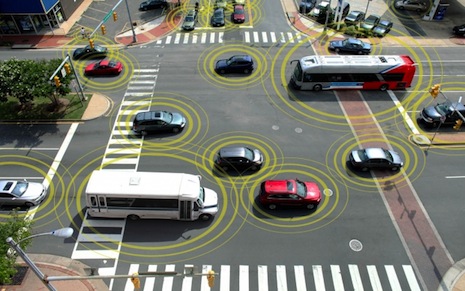
These semi-autonomous vehicles will communicate with other cars, busses, navigation services and transit authorities as much as they communicate with us. This is good. As a proponent of mobile technologies, the cloud, wearables, sensors, Bluetooth, et al, I fully appreciate the value that comes from the open sharing of our data. If I am stuck in traffic, by all means let my car inform others of a better route. If a driver’s car wishes to inform those of us a few minutes behind that there’s a hidden police stop, good for us.
Above all however, the connected car will make for safer roads. Over 95% of all car accidents are caused by driver error. The Internet of Things will put a stop to this.
According to Intel, which is keen to put still more computing chips into our cars, with a mere one second warning, over 90% of all car accidents could be prevented. A half-second warning will prevent over 50% of all car accidents. Sensors and computer chips can act faster than us. They can also behave far more rationally. If we are being dumb, careless, foolish or simply unaware behind the wheel, our connected car can save us from ourselves — and save many others as well.
Over one million people die each year from car accidents. The benefits of integrating connectivity and computing inside our cars and within our road systems is significant.
And yet…
I still want the car to remain mostly mechanical, always beautiful, powerful, visceral — all those things that are never considered relevant in Silicon Valley.
Where I come from, it was absolutely no coincidence the boy whose father let him borrow the Camaro Z28 happened to be dating the prom queen.
No parallel to this exists for the young man with the biggest PC tower or the newest smartphone.
When it comes to our cars, whether for 2015 or 2025, let us not place clock speed above top speed, throughput over horsepower, or user interface above road handling. Nodes have primal desires, too.

No Particular Place To Go
While few things in life are as joyous as a fast car, top down, the open road beckoning, music blaring, such moments are rare. No matter how beautiful or powerful the car, the daily commute can be a grind. The connected car helps mitigate this, delivering all the comforts of our modern, fully connected world, accessible via a tap on the screen, or a command from our voice.
Stuck in traffic? No worries. The smartphone-like cars of post-2015 will offer:
- streaming music, your favorite podcasts, even videos (for the kiddies)
- news, weather, market data — read aloud, even personalized, as your new car, like a giant rolling Siri, knows your interests
- geofenced notifications
- Twitter and Facebook updates, voice driven, naturally
- the fastest routes to everywhere you want to go
- the nearest gas stations and restaurants
- driving analysis, perhaps even a driver ‘Klout’ score based on your speed, how hard you brake, how close you were driving to other vehicles
- engine diagnostics
These are all good. Silicon Valley is actively seeking to disrupt our commute. I stand with them. As our cars become increasingly more connected, tapping more computing power, more crowd wisdom, more algorithmic analysis, our driving should improve, our commutes should become more enjoyable, and ultimately, personal productivity should increase. Quite possibly, stress levels will all go down.
Again, my selfish concern is that these measurable goods will increasingly lead to an emphasis on “cars” that maximize efficiency, comfort, UIs, and that offer the best search, the most up-to-date data, the sharpest display.
A box.
Help Me, Apple. You’re My Only Hope
Is it possible to have the best of tomorrow with the best of yesterday?
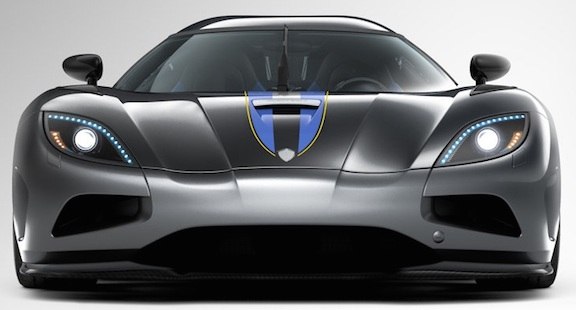
I believe in the beneficent power of technology and innovation. I fully appreciate that Big Tech, Big VC, and Big Government want a lead role in the multi-trillion-dollar Internet of Things revolution. All are eager to remake our existing infrastructure, to place “intelligence” inside our cars, to link driver, car, road, and metro transit system into a cohesive, smartly flowing whole. I accept their work will alter not only driving but possibly even remake our towns and cities.
Why, then, does this make me a bit uneasy?
I do not fear my next car will experience a blue screen of death. Well, not much. Nor am I terribly worried hackers will access my car’s data, which will no doubt be linked to a payment system that lets me speed through electronic tollbooths.
I fear Silicon Valley will fail to divine the value in what makes cars glorious, and reduce the ultimate driving machine to just one more computing device.
Should I be disheartened or joyful that Apple SVP Eddy Cue joined the Ferrari board in 2012? Or that Apple SVP Phil Schiller sees fit to have a Racer X avatar on his Twitter profile?
Will these Apple executives help keep our cars from becoming just the latest personal computer box? I can’t afford a Ferrari, although I can pretend I’m Racer X — or possibly his brother, Speed. The question is, how long can I maintain the dream?
